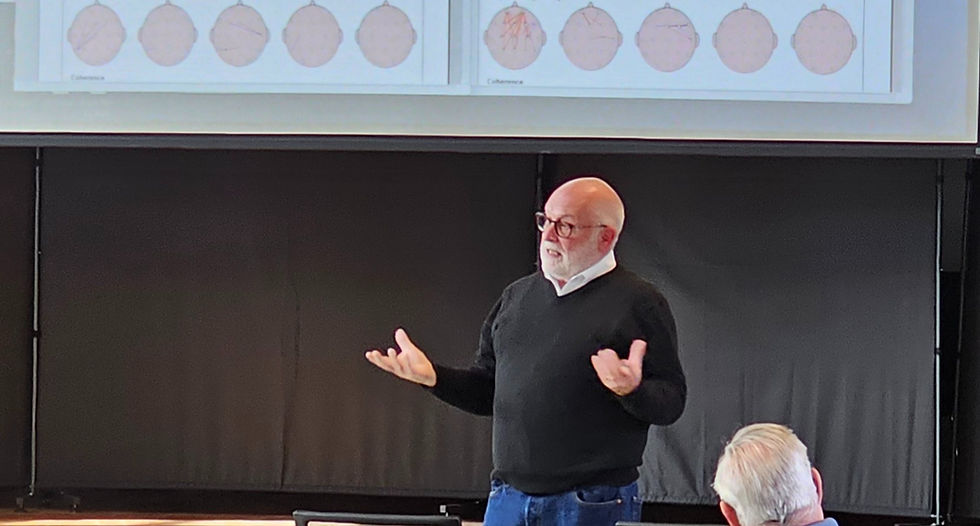Well, that didn't work!
- Lisa Ferguson
- Jun 1, 2025
- 3 min read

When families dedicate themselves entirely to their loved one’s recovery, they often overlook their own physical and emotional well-being. This self-sacrificing approach, while well-intentioned, can lead to exhaustion, resentment, and even a diminished capacity to provide meaningful support. Family members must recognize that their own health is not separate from the healing process; it is an integral part of it. By prioritizing their own self-care, they create a more stable and effective foundation for offering support, rather than running on empty.
Seeking resources like therapy or support groups can be transformative, providing a safe space for family members to process their emotions, find guidance, and build resilience. When people take time for themselves either through counseling, exercise, social connections, or simply moments of rest, they reinforce their ability to be present and helpful without losing themselves in the process. Establishing boundaries, allowing space for personal growth, and acknowledging their own needs can lead to a healthier dynamic between caregivers and their loved ones.
The hidden benefit of focusing on self-care is that it subtly shifts the balance in relationships. When caregivers model strength, self-awareness, and emotional stability, their loved one begins to take notice. Instead of feeling smothered or pressured, they see someone embodying a sense of personal agency and someone worth listening to. The more a caregiver leads by example, showing that healing is a very personal and holistic process, the more their loved one may be encouraged to take their own steps toward recovery. Only now it comes not out of obligation, but out of genuine understanding and inspiration.
The last paragraph highlights a powerful shift in caregiving dynamics—the idea that prioritizing self-care isn’t just beneficial for the caregiver but also subtly influences their loved one’s recovery. It challenges the common belief that giving everything to another person is the most effective way to help them. It is not. Instead, by modeling strength, emotional stability, and self-awareness, caregivers naturally encourage their loved ones to engage more deeply in their own healing journey.
One of the key insights in this idea is that people respond to energy—not pressure. When someone is surrounded by a caregiver who is exhausted, anxious, or entirely consumed by their recovery, they may unconsciously resist change or feel burdened by the weight of their caregiver's expectations. However, when caregivers focus on their own well-being, something interesting happens: their loved ones see a living example of balance and resilience rather than someone sacrificing themselves entirely. This example can inspire them to engage with recovery not from a place of guilt or obligation but from a genuine desire to grow.
Additionally, self-care signals emotional boundaries—a critical factor in healthy caregiving. When a caregiver sets aside time for themselves, they show that healing isn’t just about fixing someone else but also about healing their own emotional health. It may signal a level of responsibility that is new to the dynamic which, in turn, encourages their loved one to take responsibility for their own recovery instead of relying solely on external support. In many cases, when caregivers become emotionally centered, their words carry more weight, and their presence feels less overwhelming. It makes their loved one more willing to listen, reflect, and take action.
This concept isn’t just about psychology—it’s deeply human. People tend to take advice more seriously when it comes from someone who embodies strength rather than desperation. Caregivers who invest in themselves radiate confidence, and that confidence becomes an unspoken invitation for their loved ones to step into their own healing process. Instead of pushing recovery onto someone, caregivers indirectly lead by example, showing that balance, resilience, and emotional well-being are possible—and worth striving for.
This shift can be difficult, especially for those who feel guilty about focusing on themselves. However, the truth is that a caregiver who is emotionally stable is far more effective than one who is burnt out. By prioritizing self-care, caregivers don’t diminish their support—they make it stronger, clearer, and more impactful. In turn, their loved ones begin to see healing as something they can claim for themselves rather than something being spoon-fed and forced on them.




Comments